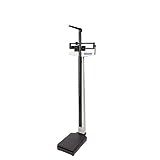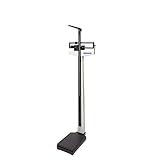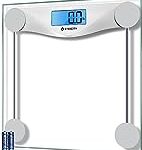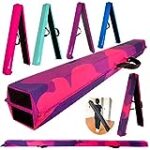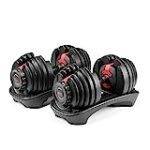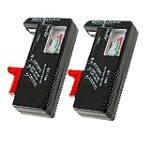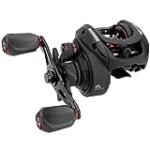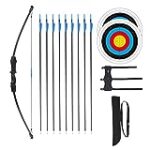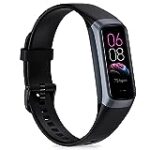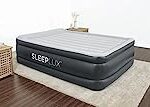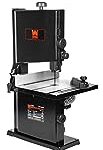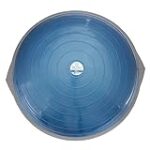🌅 Introduction
Welcome to our comprehensive beam scales best value guide! When it comes to weighing items accurately and efficiently, beam scales are a timeless and reliable choice. Whether you’re a fitness junkie looking to measure your progress, a professional chef in need of precise measurements, or simply someone who values accuracy in their day-to-day tasks, finding the best value beam scales is essential. In this guide, we’ll explore the top beam scales on the market, considering factors like price, durability, and overall performance. Get ready to make an informed purchasing decision and discover the perfect beam scale that meets your needs!
🏆 Our Top 5
- 400 lb capacity
- 10-1/2" x 14" x 3-1/4" platform
- Sold in each
- Physician quality beam scale for home, office, gym, fitness centers or medical use
- Easy to set up, comes with a 2 year factory warranty
- Heavy duty steel lever system for increased durability and accuracy
- Does Not include a height rod or wheels, with counterweights sold separately
- Exclusive 10 year manufacturer limited warranty
- DETECTO: Medical Weighing Precision Since 1900
- VERSATILE USE. Perfect in hospitals, clinics, doctor’s offices, gyms, and even home use.
- INNOVATIVE DESIGN. Features readings from either side of the weigh beam for easy viewing.
- GUARANTEED QUALITY. 2 year warranty is provided for all defective products.
- Capacity: 450 lb x 4 oz, Platform Size: 14.75 in x 10.75 in, Overall Width: 17.5 in, Overall Height: 58.25 in, Overall Depth: 23.25in, Height Measurement Range: 24-84 inch / 60-212 cm, Height Graduation: 0.125 inch / 0.1 cm, Construction: Mild steel with powder coat paint finish
- Attention: The balance has been professionally calibrated, but transportation may cause it to become unbalanced and lose its zero setting. You may need to recalibrate the product back to zero. Please refer to the instructions in Image 2 or video for the zeroing process.
- Precise Measurement: Designed with 0.1 gram accuracy and rider for accurate and repeatable result, and a zero adjustment knob to zero the scale before measurement to reduce the effects of systematic errors.
- Fast Reading: Built-in magnetic damping keeps pointer balanced for for quick weighing results. And the clear graduation is accurate and easy to read.
- Easy to Use: No requires of barrert or any other power source,you can easily get the results whenever you need them. And features a 6" diameter platform for placing items for easy weighing.
- Application: The package includes 1 pcs Triple Beam Mechanical Balance Scale with 2 pcs 1000 g weight and 1 pcs 500 g weight, increasing the capacity from 610 g to 2610 g, suitable for school teaching laboratory, classroom, university or kitchen cooking weighing etc.
- Material: Sturdy materials providing safety, durability, and long service life.
- Measurement Capacity: 200g. Precision: 0.2g.
- Included Weights: 5g, 10g, 20g, 20g, 50g, 100g. Tweezers for handling weights
- Applications: Educational physics and chemistry experiments, laboratory scale, jewelry scale, powder scale, carat scale, and more.
- Design: Pocket-size, lightweight, innovative design minimizing external disturbances.
🤔 How to choose?
1. Accuracy and Precision
When purchasing beam scales, it is crucial to consider the accuracy and precision of the scale. Accuracy refers to how close the scale readings are to the true weight, while precision refers to the consistency of the readings. Look for a scale that offers both high accuracy and precision, as this ensures reliable and consistent weight measurements. A high-quality beam scale should have clearly marked increments and a reliable balance mechanism to provide accurate and precise results.
2. Weight Capacity
Consider the weight capacity of the beam scale before making a purchase. Different beam scales have varying weight capacities, so it is essential to choose one that suits your specific needs. If you are planning to use the scale for weighing heavy objects or for commercial purposes, opt for a beam scale with a higher weight capacity. On the other hand, if you primarily plan to use it for personal or home use, a lower weight capacity scale may be sufficient.
3. Durability and Construction
Durability and construction are important factors to consider when selecting a beam scale. Look for scales made of high-quality materials that are built to withstand regular use and potential wear and tear. Stainless steel or solid metal construction is often a good choice for durability. Pay attention to the overall sturdiness of the scale, as well as the quality of the balance mechanism. A sturdy and well-constructed beam scale will endure heavy use and provide accurate readings for years to come.
4. Portability and Storage
If you plan to move the beam scale frequently or store it in a compact space, consider its portability and storage features. Look for a scale that is lightweight and easy to transport. Some models even come with folding designs or carry handles for added convenience. Additionally, ensure that the scale is easy to store when not in use. Whether it can be disassembled or has a compact design for easy storage, these factors should be taken into account to maximize usability and space efficiency.
5. Price and Warranty
While price should not be the sole determining factor, it is essential to consider your budget when selecting a beam scale. Prices can vary significantly depending on the brand, features, and weight capacity. It is advisable to compare different models and read customer reviews to find a beam scale that offers the best value for money. Additionally, check if the manufacturer provides a warranty for the product. A warranty not only indicates the manufacturer’s confidence in their product but also offers peace of mind to the buyer in case of any defects or issues.
By considering these factors when purchasing a beam scale, you can ensure that you are making an informed decision and selecting a scale that meets your specific needs. Remember, accuracy, weight capacity, durability, portability, and price are all important aspects to evaluate before making your final choice.
💡 What to Look for in a beam scales?
1. Accuracy of Measurement
One of the most important factors to consider when purchasing beam scales is the accuracy of measurement. After all, the whole purpose of using beam scales is to obtain precise weight measurements. Look for a scale that is known for its accuracy, and ensure that it has been calibrated correctly. This will help ensure that your measurements are consistent and reliable.
For example, the Ohaus Triple Beam Balance is renowned for its accuracy, with a precision of up to 0.1 grams. This scale is commonly used in laboratories and educational settings where highly accurate measurements are required.
2. Durability and Longevity
When investing in beam scales, it is important to choose a model that is durable and built to last. Look for scales that are made from sturdy materials, such as stainless steel or cast iron, as these materials can withstand regular use and are less likely to break or wear out over time. Additionally, consider the overall construction of the scale, paying attention to any weak points that may be prone to damage.
The Ohaus Harvard Trip Balance is a great example of a durable beam scale. Constructed with a stainless steel platform and a rugged die-cast base, this scale is built to withstand heavy usage.
3. Ease of Use and Maintenance
Another important factor to consider is the ease of use and maintenance of the beam scales. Look for scales that have clear and easy-to-read markings, as well as an intuitive design that allows for effortless operation. Additionally, consider the ease of cleaning and maintenance, as this will help ensure the longevity of the scale.
The Ohaus Dial-O-Gram 310-00 is a prime example of an easy-to-use beam scale. It features large, bold markings that are easy to read, and the zero adjustment is conveniently located for quick calibration. The stainless steel platform can be easily wiped clean, making maintenance a breeze.
In conclusion, when purchasing beam scales, it is important to prioritize accuracy, durability, and ease of use and maintenance. By considering these factors and choosing a reputable brand like Ohaus, you can be confident in your investment and rely on precise weight measurements for years to come.
🔍 How we picked?
1. Price range and budget
2. Weight capacity and accuracy
3. Durability and construction
1. Price range and budget:
When it comes to buying beam scales, one of the first factors to consider is the price range and your budget. You want to make sure you find a scale that fits within your financial limits while still meeting your requirements. The price of beam scales can vary greatly depending on the brand, features, and quality.
For example, if you’re looking for a basic beam scale for personal use, you may find some affordable options starting from around $30. On the other hand, if you need a more advanced scale with additional features and higher weight capacity, you may need to invest in a higher-priced model.
2. Weight capacity and accuracy:
The weight capacity and accuracy of beam scales are crucial considerations, especially if you intend to use them for commercial or industrial purposes. You want a scale that can accurately measure the weight of your items within the desired range.
For instance, if you own a small business that deals with heavy packages, you may want to opt for a beam scale with a high weight capacity, such as 500 pounds or more. Additionally, you’ll need to ensure that the scale provides accurate readings within a reasonable margin of error.
3. Durability and construction:
Another essential factor to consider when choosing beam scales is the durability and construction of the scale. You want a scale that can withstand frequent use, transport, and potentially harsh environments.
Look for scales made from sturdy materials such as steel or heavy-duty plastic. These materials can ensure longevity and resistance to wear and tear. It’s also beneficial to choose a beam scale with a robust construction that minimizes the risk of damage.
For instance, if you need a portable beam scale for on-the-go applications, you may want to consider models that come with a protective carrying case or handle, which can enhance the scale’s durability during transportation.
In conclusion, when choosing beam scales, it’s crucial to consider the price range and budget, weight capacity and accuracy, as well as the durability and construction of the scales. By taking these key factors into account, you can make an informed decision that suits your needs and preferences.
💬 Frequently asked questions about beam scales
1. What are beam scales and why should I consider buying one?
Beam scales are a traditional form of weighing scale that have been used for centuries. These scales are known for their accuracy and durability, making them a popular choice for a wide range of applications. Unlike digital scales, which rely on batteries or electricity, beam scales operate purely on mechanical principles. This means they are not only environmentally friendly but also require no additional costs for maintenance or power consumption.
2. Are beam scales suitable for both professional and personal use?
Yes, beam scales are versatile and can be used in a variety of settings. They are commonly found in professional environments such as laboratories, warehouses, and doctor’s offices, where precise measurements are essential. However, beam scales are also well-suited for personal use. Whether you need to weigh ingredients for cooking or monitor your own weight at home, a beam scale can provide accurate readings without the need for complex calibration or technical know-how.
3. How do beam scales work?
Beam scales work based on the principle of counterbalancing weights. The scale consists of a beam, which is supported by a central pivot point. On one side of the beam, there is a platform where the object to be weighed is placed. On the other side, there are adjustable weights that can be moved along the beam. By adjusting the position of the weights, the user can achieve perfect balance, indicating the weight of the object being weighed. Beam scales often have multiple beams, allowing for measurement in different weight ranges.
4. What are the advantages of beam scales over digital scales?
Beam scales offer several advantages over digital scales. Firstly, they do not require batteries or electricity, making them more environmentally friendly and cost-effective. Secondly, beam scales are known for their durability and long lifespan. They are less likely to malfunction or require repairs compared to digital scales, which are more complex and subject to electronic failures. Additionally, beam scales are often considered more accurate for larger weights, as they are not affected by fluctuations in electronic components or software errors.
5. Can beam scales be used for weighing small objects?
While beam scales are not specifically designed for weighing small objects, they can still be used effectively with some adjustments. For highly precise measurements, it is recommended to use a separate, smaller beam scale specifically designed for lighter weights. However, for everyday use where a rough estimate is sufficient, beam scales can still provide reliable readings for small objects. In such cases, it may be necessary to adjust the position of the weights more carefully to achieve accurate measurements.
Last update on 2025-07-08 / Affiliate links / Images from Amazon Product Advertising API
